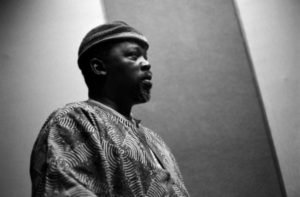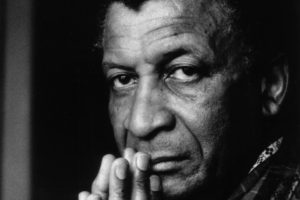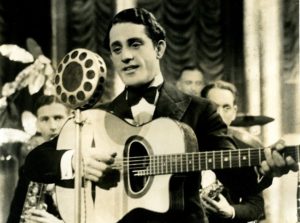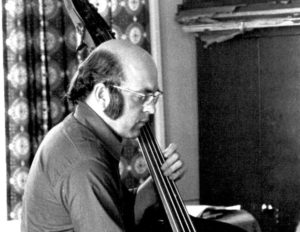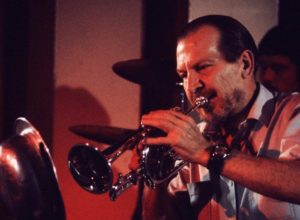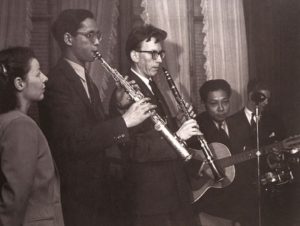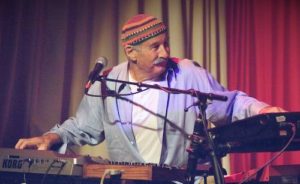Manu Dibango
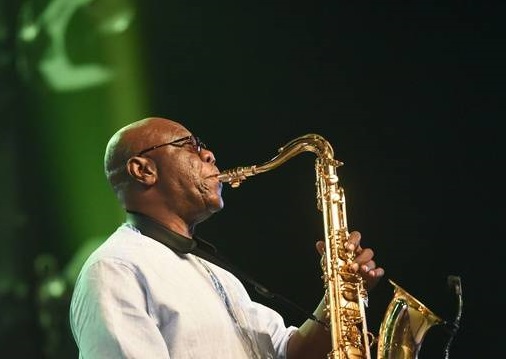
Manu Dibango (1933-2020) was a sad victim of COVID-19 when he died at 86 on March 24th 2020. He was born in Douala to a mother who was a member of the Duala ethnic group and a farther, who was Yabassi. He was educated in a church school, where he first showed a talent for music.
His parents sent him to study in Saint-Calais, not far from Le Mans. Despite a dislike of secular music, they agreed to pay for music lessons too, and studied classical piano. In 1953 he borrowed a saxophone from a friend, and enrolled in private tuition. He was soon confident enough to play some small jazz clubs in France and Belgium.
It was in Belgium that he met Congolese musician, Joseph Kabasele (known as Le Grand Kalle), who invited him to join his influential group, called African Jazz. Dibango agreed and reclocated to Leopoldville (now Kinshasa). The band conjured up a new genre – Congolese rumba. After a further spell leading Cote d’Ivoire’s State TV and Radio Orchestra, Dibango moved back to France.
In 1967, Dibango led the band on French TV’s first black music programme ‘Pulsations’. In Paris, he joined forces again with Kabasele and with Congolese saxophonist Jean-Serge Essou, to form L’African Team. In 1972, Cameroon hosted the Africa Cup of Nations, and when his team qualified for the semi-finals, he capitalised with the release of a single, ‘Hymne de la 8e Coupe d’Afrique des Nations’. The ‘B’ side was ‘Soul Makossa’. Sadly Cameroon lost to Congo, but later that year, that ‘B’ side had found its way into the New York club scene. As Dibango was unknown, 23 groups took advantage and released cover versions. When Dibango’s original did get released in 1973 by Atlantic Records, it reached number 35 on the US Billboard Hot 100.
In 1982 Dibango toured France with trumpeter Don Cherry. His 1985 album ‘Electric Africa’ featured Herbie Hancock, incorporating some of the hip hop elements, Hancock had explored so successfully on his ‘Future Shock’. Dibango went on to work with Peter Gabriel, Youssou N’Dour, Papa Wemba, Hugh Masekela, Fela Kuti, Ladysmith Black Mambazo and countless more figures from the jazz and world scenes. He was still touring in 2019.
Key Recordings
Soul Makossa (Atlantic 1972)
Makossa Man (Atlantic 1974)
Electric Africa (BMG 1985)
